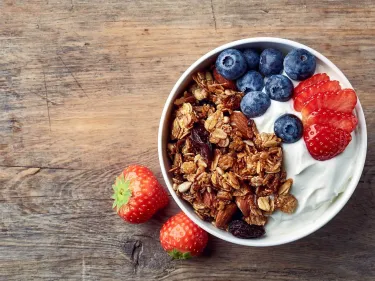If you’ve been paying attention to health gurus, Instagram influencers or your Facebook feed in the last 12 months, you’ve probably noticed the hype surrounding coconut oil. So, is it worth all the hype?
The science
In food, there are two main types of fat - saturated and unsaturated. Saturated fats are associated with increased blood cholesterol levels, whereas unsaturated fats are ‘healthy fats’ and support good heart health. Coconut oil is the only plant oil which belongs in the saturated fat family, and is around 90% saturated fat - higher than butter!
One argument in favour of coconut oil is that it is predominately made up of a particular type of saturated fatty acid - lauric acid - which acts like healthier, unsaturated fats in our body, and increase levels of HDL (good) cholesterol in our blood. However, coconut oil also acts to increase our levels of LDL (bad) cholesterol.
Should I include coconut oil in my diet?
Overall, there’s very little scientific evidence to suggest coconut oil has any noteworthy benefits on health and it can increase levels of LDL (bad) cholesterol. Until research is able to show us that coconut oil has health benefits that aren't outweighed by health risks it is best we continue to consume healthier oils that have been proven with years of research to have health benefits such as extra virgin olive oil.
Cooking Tips
- Swap coconut oils for extra virgin olive, canola, or avocado oils.
- When using coconut milk or cream, opt for ‘reduced fat’ and ‘light’ options
For more info check this out: https://theconversation.com/five-claims-about-coconut-oil-debunked-85320.













